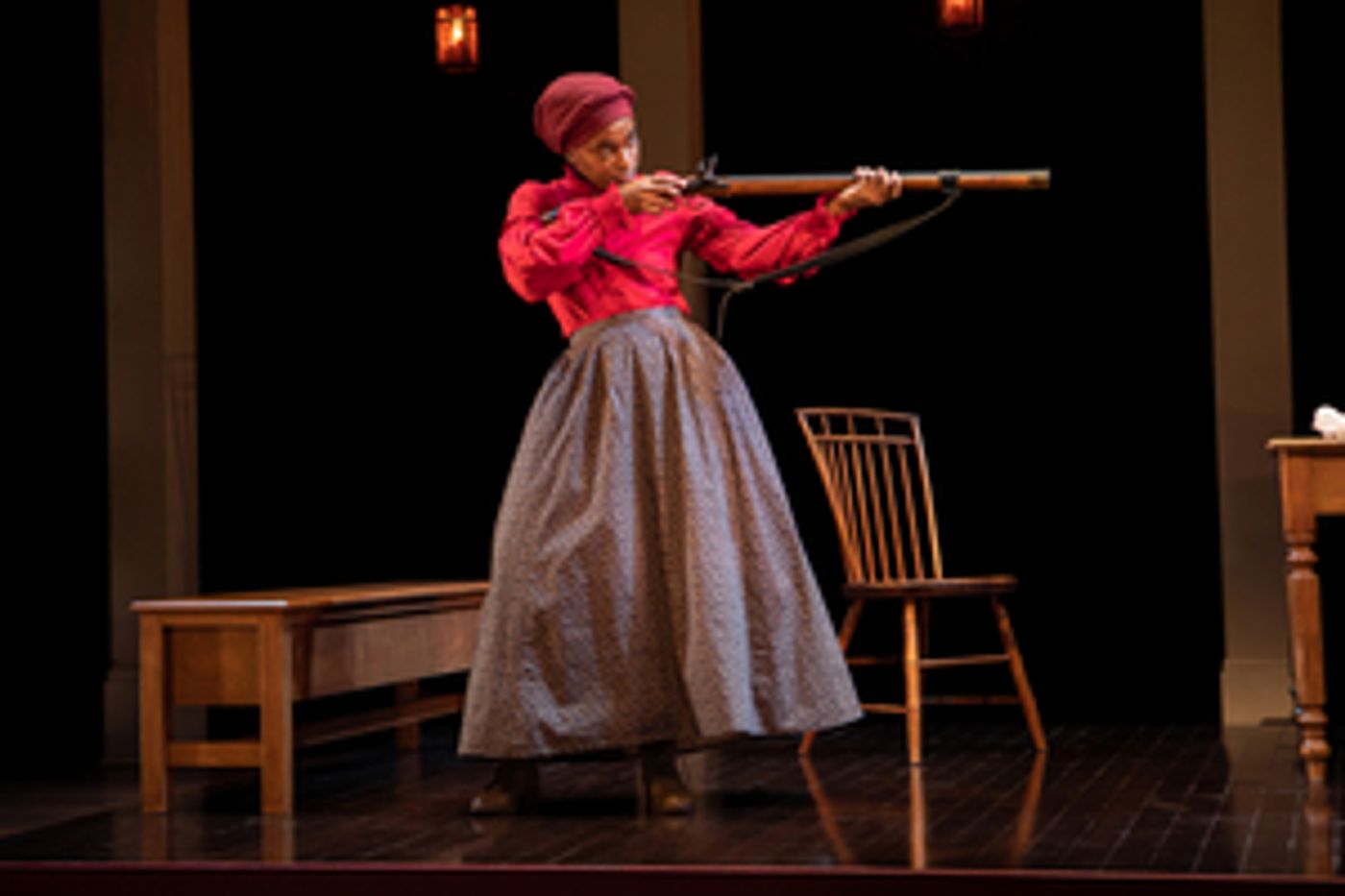Review Roundup: Dominique Morisseau's CONFEDERATES
Confederates plays through April 17, 2022 at the Alice Griffin Jewel Box Theatre.

Signature Theatre just celebrated opening night of the New York Premiere of Confederates. Written by Dominique Morisseau and directed by Stori Ayers Confederates is running at the Alice Griffin Jewel Box Theatre through April 17, 2022.
Sarah, a savvy slave turned Union spy, and Sandra, a brilliant professor in a modern-day private university, are facing similar struggles, even though they live over a century apart. This world premiere by MacArthur Genius Fellow Dominique Morisseau, directed by Stori Ayers leaps through time in order to trace the identities of these two black American women and explore the reins their racial and gender bias still hold on American educational systems today.
Let's see what the critics had to say...
Maya Phillips, New York Times: This play's structure, however, is different. There's a textbook quality to it; every scene baldly illustrates a theme, whether it's the sexualization of Black women, the ways institutions turn Black women against one another, or how expectations of Black men and Black women differ. What action there is consists of arguments and discussions usually involving two or three people, with everything else taking place in the background. For Sara, that means the usual toils of the plantation and the not-so-distant gunshots of the war, which she imagines spells freedom. For Sandra, it's her search for the perpetrator of the photo and her troubled relationships with her colleagues and students.
Helen Shaw, Vulture: in a farce this serious, direction is crucial. Stori Ayers keeps her cast almost airborne - the speed is so intense that the few moments of stillness hit the audience like brick walls. Lloyd's Sara is usually providing both the pace and the wall; her charisma onstage bends the show around her. Compared to the other performers, she's tiny; when she holds Abner's gun, she seems barely big enough to lift it. But then she dashes behind a column, and suddenly Lloyd is moving like a Marine, clearing her corners, checking her six. Morisseau's play also assumes there's an enemy at every turn. That suspicion applies to those of us watching too: The moment when even the most ruthless plays admit that they love the audience comes at the curtain call, and Confederates refuses to give us one. Instead we're left with the note to the woman in the picture. Morisseau has written a comedy about Black women who are ready to burn down their institutions. She doesn't provide any closure other than rage.
Robert Hofler, The Wrap: Morisseau is at her best with the play's many verbal fights. Only George Bernard Shaw can make us change our sympathies faster. Handled with much less finesse is the easy symmetry of the past and the present stories presented here. Stori Ayes's blunt direction wisely emphasizes the radical jumps in time with amusing and flashy costume changes. Ari Fulton is the designer.
David Finkle, New York Stage Review: For the most part, the playwright forcibly goes to the heart of racism and its white supremacist roots. Occasionally, she interrupts her committed pursuits for laughs. At least that's what she appears to be after. The sticky point is that she has established such an intelligent tone (a familiar Ketanji Brown Jackson tone?) that when she tries out the slippery-banana-peel forays, they register less as satire than as unexpected silliness.
Jonathan Mandell, New York Theater: "Confederates" itself has some loops in its tone, and holes in its plots. The playwright is taking a few modest side trips away from her usual steady path of naturalism, as she admits in a note in the script. Several scenes are meant to be parody or farce or absurdist or at least ridiculous, but wind up less funny or pointed than a tad awkward or confusing (whether because of conception or execution, I'm not sure.)
James Wilson, Talkin Broadway: The play has a great deal of humor, and, indeed, the farcical elements make the trenchant message more palatable. Regrettably, this has the collateral effect of undercutting the urgency of the drama. That is, Sara's sedition comes across as a situation-comedy caper rather than a life-or-death act of bravery. And in the scene between Malik and Sandra, which is reminiscent of the professor-student dynamic in David Mamet's Oleanna, I was paying attention to verbal clues that might eventually ensnare one or both of the characters. Alas, the ensuing game of cat-and-mouse never commenced.
Photo Credit: Monique Carboni
- To read more reviews, click here!
- Discuss the show on the BroadwayWorld Forum
Reader Reviews
Powered by
|
Videos

